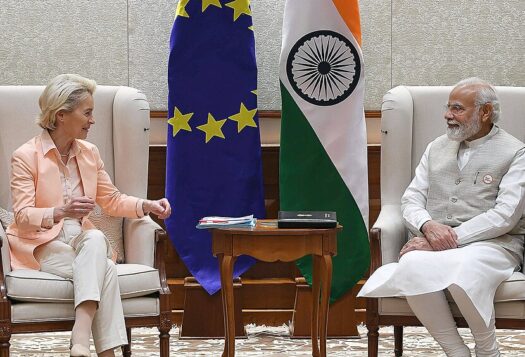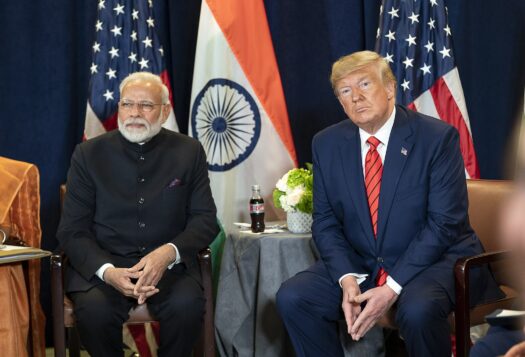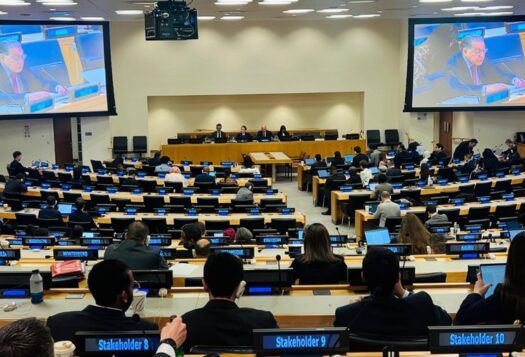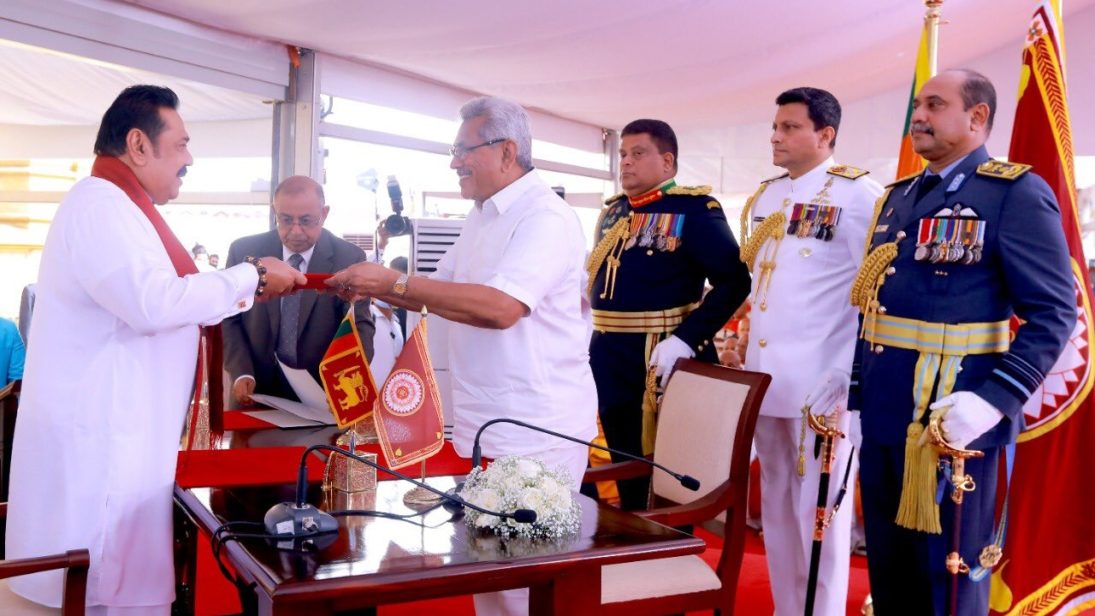
Amidst the growing concerns of the coronavirus pandemic, countries around the world are working to spur growth and enable a smooth return to the “old normal.” In Sri Lanka, this return seems to come with reinstating the political regime of the Rajapaksas. While the country has been equally affected by the economic fallout of the pandemic, public discourse had shifted towards coverage on recent political developments in the lead up to the election. The island nation has weathered a number of political storms over the past year and a half. Most recently, the electoral victory of the Rajapaksas appeared to have transformed their dynastic ambitions into reality with Mahinda Rajapaksa sworn in as Prime Minister last month, joining his brother Gotabaya Rajapaksa who was elected President last November.
Although Sri Lanka has stated it will adopt an “India-first approach” under Gotabaya Rajapaksa’s presidency, observers will be watching what the election portends for Sino-Lankan relations, particularly as they had burgeoned during Mahinda’s presidential terms from 2005 to 2015. As the new Rajapaksa administration conducts its foreign policy, Sri Lanka must be attuned to the broader geopolitical dynamics at play, especially in light of growing India-China competition in the region. In contrast to the larger concern about Mahinda Rajapaksa’s proximity with China, the recent political comeback may also be understood as a window of opportunity for India to revitalize ties with Sri Lanka.
In contrast to the larger concern about Mahinda Rajapaksa’s proximity with China, the recent political comeback may also be understood as a window of opportunity for India to revitalize ties with Sri Lanka.
Return of the Rajapaksas
October 2018 will be remembered as a tumultuous month in the political history of Sri Lanka. It was this month that then-President Maithripala Sirisena abruptly dismissed then-Prime Minister Ranil Wickremesinghe and appointed Mahinda Rajapaksa to the position. This surprising (and illegal) action left the entire country in bedlam and prompted political unrest. The Court of Appeal and Supreme Court orders subsequently declared the move unconstitutional, resulting in Wickremesinghe’s re-appointment as Prime Minister.
It soon appeared, however, that Wickremesinghe’s return to the position was not destined to be long-term as the nation witnessed one of the deadliest terrorist attacks in April 2019, jolting the country’s political leadership. The Easter Sunday bombings effects were seismic, making headlines across the globe. Several political figures blamed the administration and security forces for not having heeded intelligence warnings from India about a possible attack. These devastating blasts destroyed what remained of President Sirisena and Prime Minister Wickremesinghe’s credibility. Tensions between ethnic and religious groups also increased in the Sinhalese-Buddhist majority state, setting the November 2019 elections against a backdrop of frustration and discontent with the current leadership.
Former President Mahinda Rajapaksa’s younger brother, Gotabaya Rajapaksa—the presidential candidate for the 2019 elections—capitalized on the public outrage and vowed to take a tougher stance on terrorism in his campaign rallies. Voters’ vexation directly translated into the triumph of the opposition party, as voters hedged their bets on an economic revival under Gotabaya’s presidency. While Mahinda was soon appointed as the interim Prime Minister, his parliamentary election victory in August reaffirmed his strong presence in Sri Lankan politics.
Rajapaksas’ Close Ties With China
India’s primary political concern in Sri Lanka emerges from the potential revival of Sino-Lankan ties. The period between 2005 and 2015 serves as important precedence for these renewed ties, as Mahinda Rajapaksa served two consecutive presidential terms. As the Sri Lankan economy grew during this period, so too did the country’s debt to China. In early 2005, Chinese FDI in Sri Lanka accounted for just about one percent of the total FDI inflow to the country, amounting to USD $16.4 million. In a span of ten years, this figure increased to USD $338 million, accounting for 35 percent of Sri Lanka’s total FDI. This was a particularly large figure for a country in which mainly political elites seemed to have benefited from infrastructure development projects—projects that appeared unconcerned with larger societal unemployment and socioeconomic growth. Among the most high-profile of the Rajapaksa-led Chinese-funded projects include the Hambantota Port Project, an international airport, a 35,000-seat cricket stadium, a new separate convention center, among others.
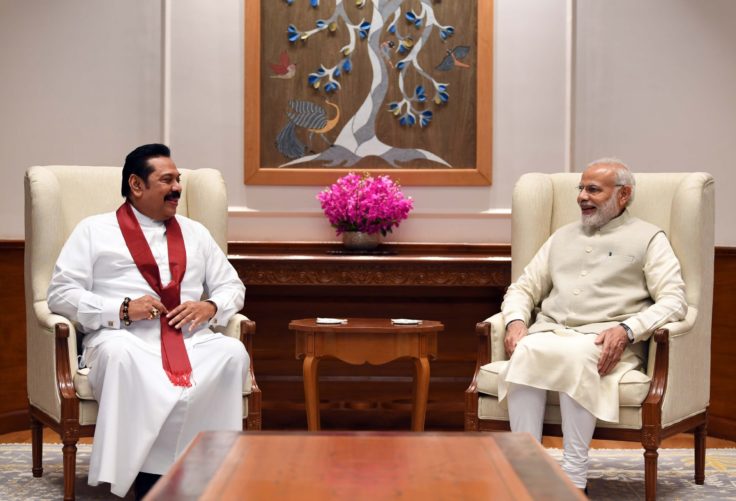
Ramifications of the Rajapaksa Win for India
Referred to by some as an “action-driven no-nonsense” leader, President Gotabaya has been viewed as a tech-savvy individual who has played a lauded role in national security, urban planning and development during Mahinda’s presidency.
Analyzing Gotabaya’s media interactions from November 2019 onwards reveals a deep awareness of and perspective towards global politics, especially with respect to the Sino-Indian competition in the Indian Ocean Region. In his first ever interview after winning the November 2019 election, Gotabaya Rajapaksa stated that Sri Lanka would always want to take a neutral stance, by not joining a bandwagon or embroiling itself in a balancing act with regional superpowers. Given a previous tilt towards China, these statements imply some consideration of India’s interests—the president has also articulated that other countries must invest in Sri Lanka to prevent sole dependence on China. This appears essentially in view of the country’s efforts to reestablish its position in the international community, which accuse the Rajapaksas of war crimes and human rights violations during the last stages of the Sri Lankan Civil War.
Some security analysts have argued that the return of the Rajapaksas would lead to the country deepening its cooperation with China while simultaneously strengthening relations with India. While apprehensions about Beijing’s increasing influence impacting New Delhi’s interests in the region ring true to an extent, it is important to also understand the fiscal needs of a small developing country like Sri Lanka, which aims to modernize its economy through support from other nations. China seems a fitting player with the requisite financial capacity to offer support. India, too, has financed several development projects in Sri Lanka. It is important that India-China competition at the security level does not lead to straining of ties with countries in which both are invested.
However, a positive trajectory for India-Sri Lanka relations has been stymied by progress on the trilateral project between India, Japan, and Sri Lanka for the construction of the East Container Terminal (ECT) at the Colombo Port. Since a formal agreement of this project is yet to be signed, local trade unions are worried that the ownership of ECT would be ceded to India, and have stopped work at the port. While experts have attributed this move to China, it is essential that India refocuses attention on other projects that it is undertaking with Sri Lanka. For example, the Economic and Technical Cooperation Agreement, which is the updated version of the India-Sri Lanka Free Trade Agreement is significantly delayed. Sri Lanka has depended on India’s assistance in the form of housing projects and its continued support amidst the coronavirus pandemic. While analysts have pointed to Prime Minister Narendra Modi’s personal engagement and enthusiasm in pursuit of stronger diplomatic relations, bureaucratic lethargy has long been India’s Achilles heel. It must work on expediting project delivery as it looks to reinvigorate its relations with Sri Lanka.
Remarks proclaiming an invariable weakening of Indo-Lanka relations in light of the return of the Rajapaksas do not align with recent diplomatic efforts between the two neighbors.
Seizing the Opportunity
The return of the Rajapaksa family is, in itself, an opportunity for New Delhi to strengthen ties with Colombo. Remarks proclaiming an invariable weakening of Indo-Lanka relations in light of the return of the Rajapaksas do not align with recent diplomatic efforts between the two neighbors.
Within days of the poll results in the November presidential elections, India’s External Affairs Minister, Dr S Jaishankar flew down to Colombo to wish the newly elected President Gotabaya well. Ten days later, Gotabaya himself made a visit to India, marking his first overseas visit as President. The camaraderie between Modi and Gotabaya Rajapaksa was well highlighted during the one-on-one interaction, emphasizing the need to move forward on a multi-faceted partnership. This discussion resulted in India announcing a line of credit of USD $400 million for infrastructure and development projects in Sri Lanka, and an additional fund of USD $50 million to fight terrorism. In February 2020 Mahinda Rajapaksa, the then interim Prime Minster, visited New Delhi to meet with the Indian President, Prime Minister, and the External Affairs Minister. Following the August elections, Modi was the first leader to call Mahinda Rajapaksa and offer his congratulations.
Such high-level visits and diplomatic outreach between the two nations are a consistent and positive sign. Just as Sri Lanka’s engagement in India’s Neighborhood First policy is indispensable, India’s massive volume of traffic to Colombo Port is economically important to Sri Lanka. Further, historical, ethnic, and cultural ties between the two countries result in a particularly sentimental bond, something that has been an integral part of bilateral cooperation. As the Rajapaksas return to power in Sri Lanka, India should be careful not to assume a tilt towards China and watch for new opportunities as the leaders from each state work to bolster diplomatic ties.
***
Image 1: Mahinda Rajapaksa via Twitter
Image 2: PMO India via Twitter
